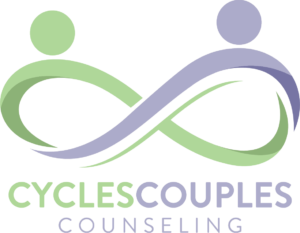Society has really done a disservice to men. It’s taught them to “man up” and not show their emotions. We see this in tv, movies, in sports, and sometimes even in the family system. This message is so pervasive.
Be tough!
Be aggressive!
Don’t cry! That’s weak!
Be independent!
The basic gist of all these messages is don’t be vulnerable and don’t depend. Unfortunately, this manning up message is hurting not only our men, but also their relationships with their partners.
Why is the man up message harmful?
Commonly, this phenomenon is referred to as “Toxic Masculinity.” As a society, we have equated stoicism and aggression with masculinity. This is incredibly damaging.
How could you possibly form an intimate relationship with another human without emotions?? This doesn’t make sense.
And yet somehow, after years of grooming out all signs of vulnerability and emotional expression, we expect our men to be intimate with us. As a result, they struggle.
How does this happen?
A 1995 study by American Psychological Association President, Ronald F. Levant, referred to this process as “normative male alexithymia.” He defined it as the socialized pattern of an inability to put emotions and feelings into words.
My Dad told me to, “Man up.”
My football coach wouldn’t let us cry.
I was called a sissy and weak if I was sad.
We never really talked about those feelings at my house or with my friends.
When male babies are born they cry when they’re hurt or scared. They reach for mom and dad for comfort. Where does this go?
Somewhere along the line, society is feeding them messages that this vulnerable expression and dependence is negative. Our culture is constantly teaching “emotional stuffing” to our men.
How does manning up hurt relationships?
This message for men to constantly stuff their emotions is incredibly stunting. Relationships need vulnerability to form healthy attachments. Unfortunately, without emotional expression, you can’t do this!
Tragically, our society has revered men for dominance, aggression and independence, causing them to struggle with the tender emotions necessary for intimacy.
Men have received little practice sharing their hurts or fears and asking for help or comfort. As a result, by stuffing and figuring it out on their own, they end up just that, on their own.
How does this show up in counseling?
Emotionally Focused Therapy does exactly what the name states: focuses on emotions. We know that emotional expression helps to strengthen bonds and repair hurts. Without an ability to identify and express your emotions, it’s likely that you’ll be pretty challenged in therapy.
Every time I try to tell her, we argue.
I never thought to tell her that.
I don’t know how to explain how I’m feeling.
It feels awkward to share that.
Unfortunately, without men sharing, we leave their silence, confusion, frustrations, etc. up to their partner for interpretation. This is a risky situation.
If a couple is entrenched in a negative cycle, it would make sense that their partner would fill in the blanks with something less than desirable. On the outside it often appears like,
He doesn’t care.
It doesn’t matter to him.
I’m not enough.
Lo and behold, the assumptions a partner makes in that disconnection frequently mimics their insecurities in the relationship. The less he shares, the more they assume.
Try to See Things From Their Point of View
While it may seem like the obvious solution is to share and correct the narrative, we have to take into consideration that this isn’t normal for most men. This would be a whole new way to communicate. Most likely, the skills in this area are very novice.
Tragically, this has a hugely negative impact both emotionally and physically. This is lonely for the partners, but also the men.
Surprisingly enough, the hurt caused by manning up affects both people in an almost identical way. The pain of isolation due to stuffing emotions is a shared experience.
How do we stop manning up?
While it’s not an instant or easy shift in communication, counseling can help! Emotionally Focused Therapy is specifically designed to help couples practice expressing the feelings associated with their attachment system.
The therapy office serves as a safe space to identify and find language to express your emotions in relation to one another.
Seems like this is more his problem than mine...why should I care?
We get it. Blaming feels good. It relieves our responsibility. Let’s remember though, you have a part in this negative cycle too.
He needs you. Risking emotions with a therapist is totally different than sharing them with someone who matters.The type of emotional response a therapist can achieve is nothing compared to the emotional pull you have in the relationship.
In other words, if you want to help him learn this, you both have to be engaged and present in that emotional experience simultaneously.
It’s a two way street.
No intimate relationship can survive with only one-way emotional input. Toxic masculinity and manning up will hurt your relationship by depriving it of half the emotional ingredients it needs.
To heal disconnection and get closer to your partner, you have to reach out. In the end, counseling can help you to normalize those confused, helpless feelings and learn to depend on your partner for security. We can hobble through this three legged race together.
Not only will this help strengthen your relationship, but it will also help bolster your confidence. Remember the dependency paradox? The more we depend in our intimate relationships, the more we are free to be independent in the outside world.
If you’re ready to shift out of this manning up mentality, schedule a consultation session at Cycles Couples Counseling and let’s do something different!
Learn more about Couples Therapy in California.


